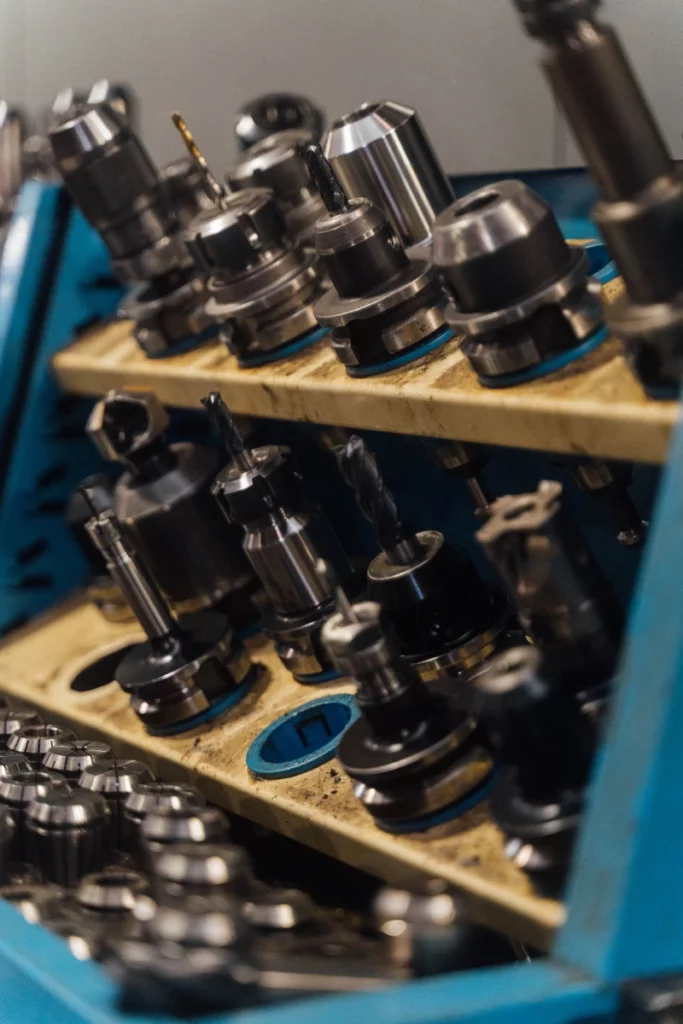Selecting the appropriate CNC machine and CNC metal lathe is a pivotal decision for manufacturers in Scotland aiming to enhance precision, efficiency, and productivity. This comprehensive guide delves into the essential factors to consider, the types of machines available, and highlights reputable local suppliers to assist you in making an informed choice.
Understanding CNC Machines and CNC Metal Lathes
What is a CNC Machine?
CNC (Computer Numerical Control) machines are automated tools controlled by computer programs, enabling precise and repeatable manufacturing processes. They are integral in producing complex parts with high accuracy across various industries.
The Role of CNC Metal Lathes
A CNC metal lathe is specifically designed for rotating a metal workpiece against cutting tools to shape it into the desired form. This process is essential for creating components such as shafts, bushings, and fittings with exact specifications.
Assessing Your Manufacturing Needs
Before investing in a CNC machine or metal lathe, it’s crucial to evaluate your specific requirements:
1. Production Volume and Complexity
- Low to Medium Volume with Simple Designs: A basic 2-axis CNC lathe may suffice.
- High Volume with Complex Designs: A multi-axis CNC machine might be necessary to handle intricate tasks efficiently.
2. Material Compatibility
Ensure the machine is compatible with the metals you intend to work with, such as aluminium, stainless steel, or titanium. Different machines are optimized for various materials, affecting performance and longevity.
3. Precision and Tolerance Requirements
Industries requiring high precision, like aerospace or medical devices, should opt for machines known for their accuracy and reliability.
Key Features to Consider
When selecting a CNC metal lathe, consider the following features:
1. Bed Length and Swing Capacity
- Bed Length: Determines the maximum length of the workpiece.
- Swing Over Bed: Indicates the largest diameter of the workpiece that can be accommodated.
2. Spindle Speed and Motor Power
Higher spindle speeds and motor power enable efficient machining of tougher materials and contribute to faster production times.
3. Tooling and Accessories Compatibility
Machines supporting a variety of tools and accessories offer greater versatility, allowing for a broader range of operations.
4. Control System and Software
User-friendly interfaces and advanced control systems can significantly enhance productivity and ease of operation.
Types of CNC Lathes
Understanding the different types of CNC lathes will aid in selecting the right machine:
1. 2-Axis CNC Lathes
Suitable for straightforward turning operations, involving the X and Z axes.
2. 3-Axis CNC Lathes
Incorporate a C-axis, enabling additional milling and drilling functions.
3. Multi-Axis CNC Lathes
Include Y-axis and sometimes B-axis, allowing for complex machining tasks in a single setup.
Evaluating Suppliers in Scotland
Choosing a reputable supplier is as important as selecting the right machine. Consider the following factors:
1. Experience and Expertise
Look for suppliers with a proven track record in the industry, demonstrating reliability and knowledge.
2. Range of Machinery
A diverse inventory indicates the supplier’s capability to meet various needs and preferences.
3. After-Sales Support
Ensure the supplier offers reliable maintenance and technical support services to assist with any operational issues.
4. Customer Reviews and Testimonials
Seek feedback from previous clients to gauge satisfaction levels and the supplier’s reputation.
Quick Comparison: Choosing the Right CNC Metal Lathe or Machine
| Factor | Entry-Level (2-Axis) | Mid-Range (3-Axis) | Advanced (Multi-Axis) |
|---|---|---|---|
| Best For | Simple turning operations | Turning + basic milling/drilling | Complex parts, full machining in one setup |
| Typical Applications | Shafts, bushings, collars | Fittings, housings, components with holes | Aerospace, medical, high-precision complex parts |
| Workload Suitability | Low to medium volume | Medium to high volume | High volume, high complexity |
| Material Compatibility | Soft metals (e.g. aluminium, brass) | Most metals including stainless steel | Hard metals (e.g. titanium, tool steels) |
| Control System | Basic manual/CNC hybrid | User-friendly CNC interface | Advanced control with automation features |
| Spindle Speed | Low to moderate | Moderate to high | Very high, adaptive |
| Tooling Compatibility | Limited | Moderate | Wide tooling range and accessory support |
| Initial Investment | ££ (Low) | £££ (Medium) | ££££ (High) |
| Scalability | Limited | Some upgrade paths | Highly scalable, modular upgrades |
| Ideal Business Size | Small workshops, startups | Growing manufacturers | Large-scale industrial production |
Trusted CNC Machining Partner in Scotland
To ensure the success of your CNC machining projects in Scotland, partnering with a trusted local expert is essential. Aeron Automation stands out with over 40 years of experience, cutting-edge CNC technology, and a commitment to precision-engineered solutions. Their team delivers high-quality components across industries with guaranteed satisfaction and rigorous quality assurance.
Contact Aeron Automation today to discover how their expertise can bring efficiency and excellence to your next project.
Conclusion
Selecting the right metal CNC machine and CNC metal lathe in Scotland requires a thorough assessment of your business needs, careful evaluation of machine features, and choosing a reputable local supplier. By considering these factors, you can make an informed decision that enhances your manufacturing capabilities and supports your business growth.
